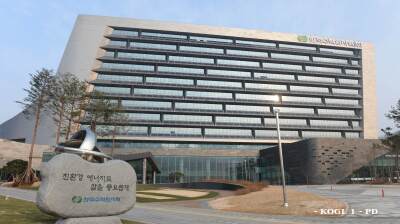Azerbaijan is steadily advancing towards becoming a leader in renewable energy, with the goal of emerging as a key exporter of green energy to Europe.
In recent years, the country has actively developed solar and wind energy projects, attracting leading international companies for collaboration. Azerbaijan's ambitious objectives to increase the share of alternative energy sources and reduce reliance on fossil fuels reflect the country’s commitment to making a significant contribution to global efforts to combat climate change and secure a sustainable energy future.
In the medium term, Azerbaijan aims to become an exporter of electricity generated from alternative sources. The country has signed contracts and memorandums of understanding with foreign companies for projects to produce 10 GW of solar and wind energy. The implementation of these projects will facilitate a smooth transition from fossil fuels to renewable energy, without negatively impacting the national economy, while also supplying green energy to European consumers, says the government.
Over the next decade, Azerbaijan will transition to the widespread use of green energy. A few years ago, the International Renewable Energy Agency (IRENA) highlighted the high potential of renewable energy in Azerbaijan, noting that while the country currently relies on oil and gas, it has excellent wind and solar resources.
Specifically, Azerbaijan is especially rich in wind energy potential. The Absheron Peninsula, the Caspian Sea coastline and islands in the north-western Caspian Sea, the Ganja-Dashkesan zone in western Azerbaijan, and the Sharur-Julfa region of the Nakhchivan Autonomous Republic are especially well suited to wind farms.
The largest wind power plant in the country is the hybrid power plant at the Gobustan alternative energy testing ground. According to energy experts, wind speeds of 3-4 meters per second are sufficient to generate electricity, and in Baku and Absheron, the average annual wind speed exceeds 11 metres per second.
On January 13, 2022, construction began on the Khizi-Absheron wind power plant, the biggest in Caucasus, under a contract with Saudi Arabia’s ACWA Power. The plant is being built in two locations: Zone 1 in the Absheron district and Khizi-3 in the Khizi district. A total of 37 wind turbines will be strategically placed to capture optimal wind energy. The plant’s capacity will be 240 MW, with a planned coverage of 300,000 households. The execution contract between Azerbaijan’s Ministry of Energy and ACWA Power for the construction of the Khizi-Absheron wind power plant was signed in January 2020. In December of the same year, the Investment Agreement, Power Purchase Agreement, and Grid Connection Agreement were signed.
Recently, ACWA Power’s Regional Director for Central Asia, Abid Malik, announced the timeline for the launch of the wind power plant. The Khizi-Absheron wind power plant is set to begin operations in the second quarter of 2025 as part of the first phase.
This plant will be the first independently developed utility-scale wind energy project in Azerbaijan. The plant will generate up to 893 GWh of clean electricity annually, reducing carbon emissions by over 400,000 tonnes per year (tpy). It will operate under a "build-own-operate" (BOO) model for 25 years, managed by ACWA Power.
Notably, ACWA Power’s subsidiary, ACWA Power Azerbaijan Renewable Energy, became the first company in Azerbaijan to receive an investment promotion document in the renewable energy sector. The company will invest AZM417mn ($245mn) in the construction of the Khizi-Absheron wind power plant.
ACWA Power plans to invest around $5bn in Azerbaijan, primarily in the renewable energy sector. The timeline and other details of the Khizi-Absheron wind power plant construction were discussed during a recent visit by Azerbaijan’s Minister of Energy, Parviz Shahbazov, to Saudi Arabia. During a meeting with ACWA Power’s Chairman, Mohammad Abunayyan, discussions focused on the prospects of building offshore and onshore wind power plants with a total capacity of 2.5 GW and creating energy storage systems. Shahbazov also invited the Saudi company to participate in green energy projects in Nakhchivan.
Last October, Masdar and ACWA Power signed a memorandum of understanding with the national oil company SOCAR to implement renewable energy projects in the Nakhchivan Autonomous Republic with a total capacity of 500 MW.
In May of this year, during a visit by Saudi Arabia’s Minister of Energy, Prince Abdulaziz bin Salman Al Saud, to Azerbaijan, an agreement was signed to implement a 200-MW battery energy storage system (BESS) project and a framework agreement for a 200-MW onshore wind energy project.
During the meeting in Baku, the importance of implementing the Energy Cooperation Agreement and the activities of the Joint Technical Committee in the multifaceted development of energy relations between the countries was discussed. In particular, the crucial role of partnership in green energy and the strengthening of energy cooperation on a long-term basis was emphasised. As President Ilham Aliyev of Azerbaijan previously noted, the country plans to produce up to 5 GW of solar and wind energy by 2030 under signed agreements and memoranda of understanding (MoUs).
Aliyev said that the main investors in Azerbaijan’s renewable energy sector are ACWA Power (Saudi Arabia) and Masdar (UAE). Azerbaijan, he noted, intends to become one of the key exporters of green energy to Europe as part of the Black Sea Submarine Cable project, and it has already been decided that this project will be integrated with the Caspian Sea wind power project. The Caspian wind energy potential is promising and holds significant opportunities.
Speaking at the Baku Energy Forum, Abid Malik stated that the company is currently working with the Azerbaijani government on a project to build an offshore power plant with a capacity of more than 100 MW. The regional director for Central Asia at ACWA Power called Azerbaijan a key country in the region for the company due to its high stability and favourable geographical location. The Khizi-Absheron wind power plant will be the first result of this fruitful cooperation and a significant contribution by Azerbaijan towards achieving decarbonisation goals.
Azerbaijan is not only actively developing its domestic energy infrastructure but is also becoming an important player in the global green energy market. In recent years, the country has made significant efforts to implement and promote renewable energy sources such as solar, wind and hydroelectric power. This has been made possible by an ambitious state policy aimed at diversifying the energy sector and reducing dependence on fossil fuels.
Sustainable development and international cooperation in the field of renewable energy open new perspectives and opportunities for Azerbaijan, which are already beginning to materialise. Major projects for the construction of solar and wind power plants are being implemented, which not only meet the growing needs of the domestic market but also allow for the export of surplus energy to neighbouring countries.
Thanks to its strategic location at the crossroads of Europe and Asia, Azerbaijan is becoming an important energy hub, ensuring reliable supplies of green energy to countries in the region and beyond. This strengthens the country’s international position and contributes to its integration into global energy networks. Moreover, active participation in international initiatives and partnerships with leading global companies allows Azerbaijan to attract significant investments and advanced technologies, which in turn accelerates the development of the renewable energy sector.
bneGREEN

Kyrgyzstan says neighbours “upset” by country’s lack of water
“This year we were supposed to overcome shortages, but instead, they have intensified,” deputy head of cabinet tells Uzbekistan and Kazakhstan.

EXPLAINER: What is the EU’s CBAM and how will it affect global trade from 2026?
The European Union’s Carbon Border Adjustment Mechanism (CBAM) will enter its full operational phase on January 1, 2026, marking a major shift in global climate and trade policy.

Iran faces critical water crisis after driest year in five decades
Iran faces critical water crisis after driest year in five decades with 40% nationwide rainfall drop.

Global renewables to double by 2030, but IEA warns momentum must accelerate
Global renewable energy capacity is on course to double by 2030, reaching 4,600 GW—comparable to the current combined total of China, the European Union and Japan—according to the International Energy Agency’s Renewables 2025 report.




